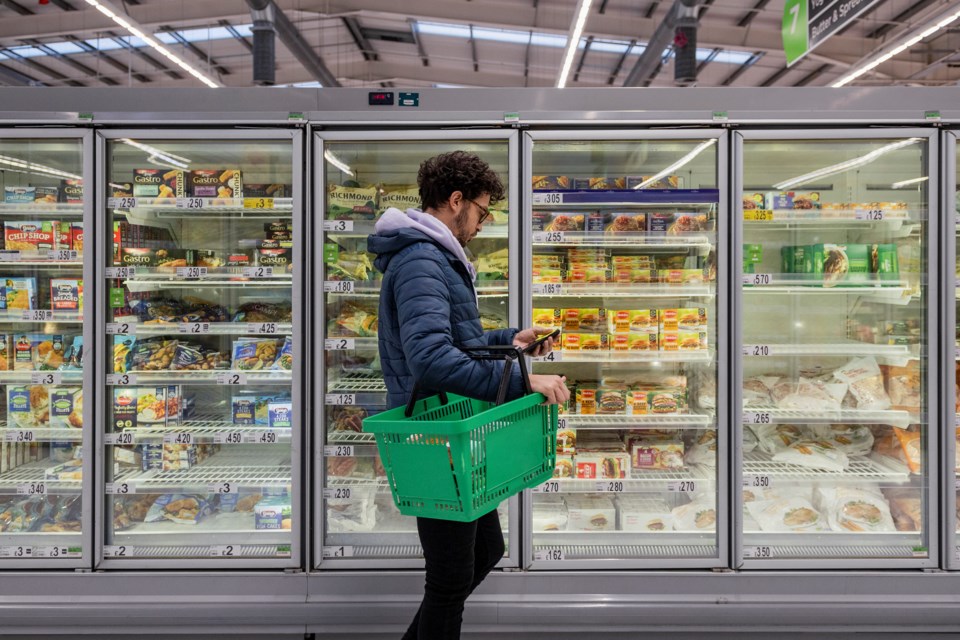British Columbians got some much-needed relief at the checkout counter in May as the Consumer Price Index rose 3.4 per cent last month – down from 4.3 per cent a month earlier.
That matched the national rate of inflation, which saw its smallest increase since June 2021, according to Statistics Canada data released Tuesday.
It also marked the second month in a row where inflation on the West Coast either matched or came in below the national rate after spending 12 straight months outpacing the national rate.
The rate of inflation in Victoria cooled to 2.9 per cent last month compared with 4.3 per cent in April. Inflation in Metro Vancouver cooled to 3.6 per cent in May compared with 4.5 per cent a month earlier.
Nationwide, gasoline prices dropped 18.3 per cent on an annual basis, while cell phone prices dropped 8.2 per cent.
Inflation remained sticky when it came to food. Grocery prices jumped nine per cent and restaurant prices jumped 6.8 per cent on an annual basis.
Despite some headway being made on the inflation front, core inflation still likely remains too high for the Bank of Canada, according to BMO’s Benjamin Reitzes.
The bank’s managing director of Canadian rates said in a note a July rate hike still looks likely based on Tuesday’s data.
TD senior economist Leslie Preston echoed those sentiments.
“Looking at the Bank's core measures, governor [Tiff] Macklem may have a Bon Jovi earworm, humming, "Whoa, we're half way there…". But there is still a ways to go to get inflation all the way back to two per cent,” she said in a note.
“And the bank would rather not be "livin' on a prayer," and is likely to take rates another quarter point higher in July to ensure demand, and hence price pressures cool further.”





